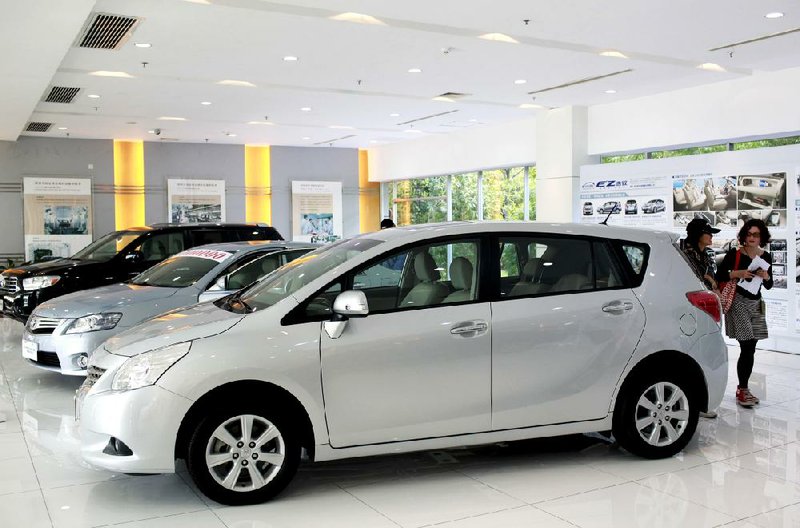TOKYO — Toyota, Nissan and Honda signaled Wednesday that anti-Japanese protests in China, the world’s largest vehicle market, will lead to further production cuts.
Nissan lowered August output in China, its largest market by volume, 8.9 percent from a year earlier to 86,488 units, the Japanese carmaker said Wednesday. Chinese production fell 18 percent to 67,625 vehicles at Toyota, Asia’s biggest automaker, and declined 10 percent at Honda.
Officials at the Japanese automakers said sales and production are poised to worsen in September after anti-Japan protests over disputed islets in the East China Sea escalated, with some demonstrators torching auto showrooms and smashing cars. Japanese autos will lose their lead this year over German nameplates in the country for the first time since 2005, China’s Passenger Car Association estimates.
“You can’t leave the Chinese market, but you may try to move the production line out of China for the time being,” said Yuuki Sakurai, president of Fukoku Capital Management. Investor demand for the automakers’ shares “depends on how the companies are going to cover these risks,” he said.
August production numbers don’t reflect the effects of the anti-Japan protests, said Yurika Motoyoshi, a Toy- ota spokesman. “Last year’s numbers were unusually high as we recovered from the earthquake and tsunami. We’ve already seen that orders are declining, so the protests’ impact will be shown in the September numbers.”
Nissan said Wednesday that it’s halting Chinese production three days ahead of schedule to reflect demand, while Toyota said that it suspended output Wednesday until Oct. 8 at plants in Guangzhou and Tianjin, and at its Sichuan plant starting Saturday.
Nissan will suspend production in China from today and resume output on Oct. 8 in view of the “current market situation,” said Chris Keeffe, a spokesman for the company. The company makes cars in the country with Dongfeng Motor Corp.
“In previous years, they often added shifts around this time to meet rising demand during the hot sales season in September and October,” said Han Weiqi, a Shanghai-based analyst with CSC International Holdings Ltd. “Japanese automakers will see their market share being taken away by American and European automakers, as consumers who need to buy cars will simply turn away and buy other brands.”
Japanese car brands’ China market share will probably fall to 22 percent this year, while German brands will increase theirs to 22.5 percent, according to China’s Passenger Car Association.
Combined sales of Japanese automakers fell last month in China, compared with gains of more than 10 percent for German, U.S. and South Korean vehicles, according to the China Association of Automobile Manufacturers.
Some dealerships selling competing brands have introduced marketing campaigns to attract buyers shunning Japanese cars.
A Buick showroom in eastern Zhejiang province is offering cash rebates and gift bags to buyers who trade in their Japanese cars, according to Chen Linling, a salesman at the dealership.
“Business has been quite good and we’ve been busy since we started the promotion,” Chen said by telephone. “We rolled out this marketing move after the Diaoyu protests in China.”
Business, Pages 25 on 09/27/2012

